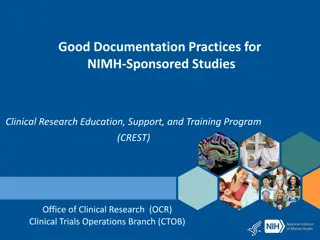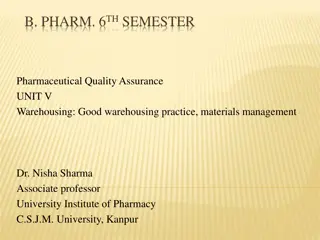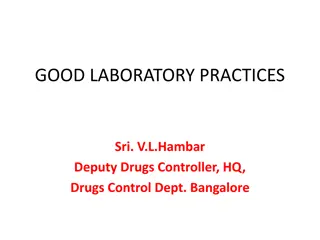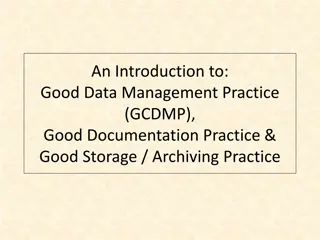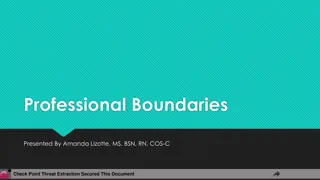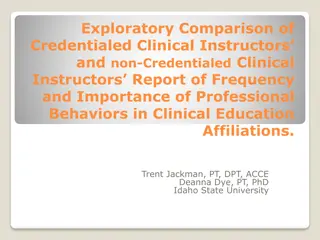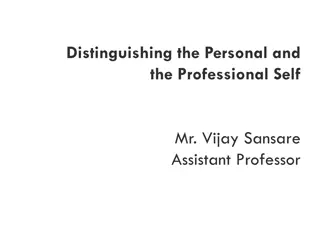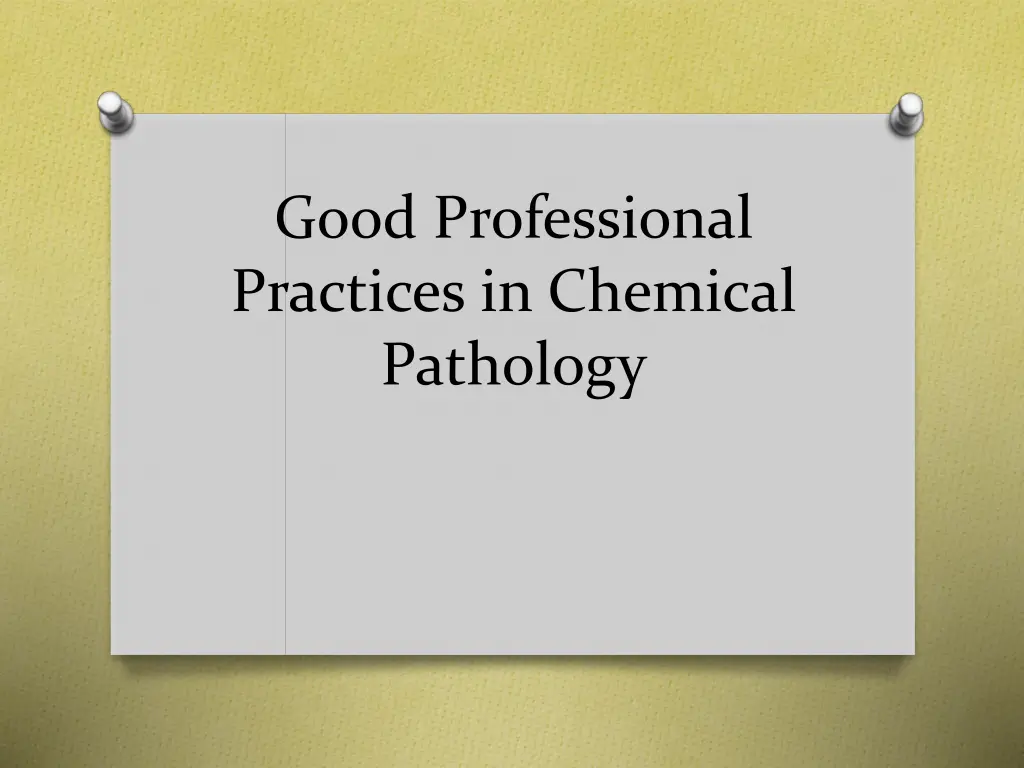
Chemical Pathology Professional Practices and Skills Overview
Explore the realm of chemical pathology with insights on good professional practices, mastering analytical requirements, participating in quality assurance programs, handling instruments, method evaluation, problem-solving in clinical settings, derived tests calculation, and lab safety protocols.
Download Presentation

Please find below an Image/Link to download the presentation.
The content on the website is provided AS IS for your information and personal use only. It may not be sold, licensed, or shared on other websites without obtaining consent from the author. If you encounter any issues during the download, it is possible that the publisher has removed the file from their server.
You are allowed to download the files provided on this website for personal or commercial use, subject to the condition that they are used lawfully. All files are the property of their respective owners.
The content on the website is provided AS IS for your information and personal use only. It may not be sold, licensed, or shared on other websites without obtaining consent from the author.
E N D
Presentation Transcript
Good Professional Practices in Chemical Pathology
Chemical Pathologist as Bench worker Master of the bench work analytical requirement scientific phenomena
National External Quality Assurance Programme Pakistan (NEQAPP) Participation 100 Outliers 90 Not accepted 80 70 60 % 50 40 30 20 10 0 Urea Calcium Creatinine Sodium Protein Magnesium Glucose Cholesterol Albumin Bilirubin Potassium Phosphate Lithium Uric acid
Method Evaluation O Various aspects of method evaluation have always an important part of Chemical Pathology Examinations. O Now it will be made more objective, crisp and structured. O The calculation station will test the theoretical aspects before testing the practical skills in a separate station
Problem solving in varied Clinical Situations O In day to day work Chemical Pathologist may be required to solve peculiar problems related to lab work. O These situations require acumens different from those involved in interpreting lab data. O The situations may vary widely, some examples given here, however, will help understand the nature of this faculty.
Derived Tests O It is very rightly said that Chemical Pathologist should always keep a calculator in his / her pocket. O The purpose is to carry out or verify various derived tests determined by applying various formulae or equations. O Continuous practice may give him or her a skill to carry out these calculations in minimum time. O Examples include Creatinine Clearance, LDL- Cholesterol by Friedwald etc.
Lab Safety O Biosafety and safety from Chemical, Electric and Fire hazards are very important domains in the training of a Chemical Pathologist to safeguard his / her own well- being and that of the other lab staff and community at a large. O This skill and attitude can be tested only by a properly designed observed station.
Data Interpretation O A Chemical Pathologist spent a considerable portion of his day`s work in interpreting the patients lab reports. O This is essentially a higher cognitive domain and can be mastered only with continuous knowledge updating and practice. O The methods involved in this domain testing are already quite objective.
OSPE O Objective O Structured O Practical O Examination
Why it is Mock?? O Results not to be communicated O Writing identification is OPTIONAL!!!!


